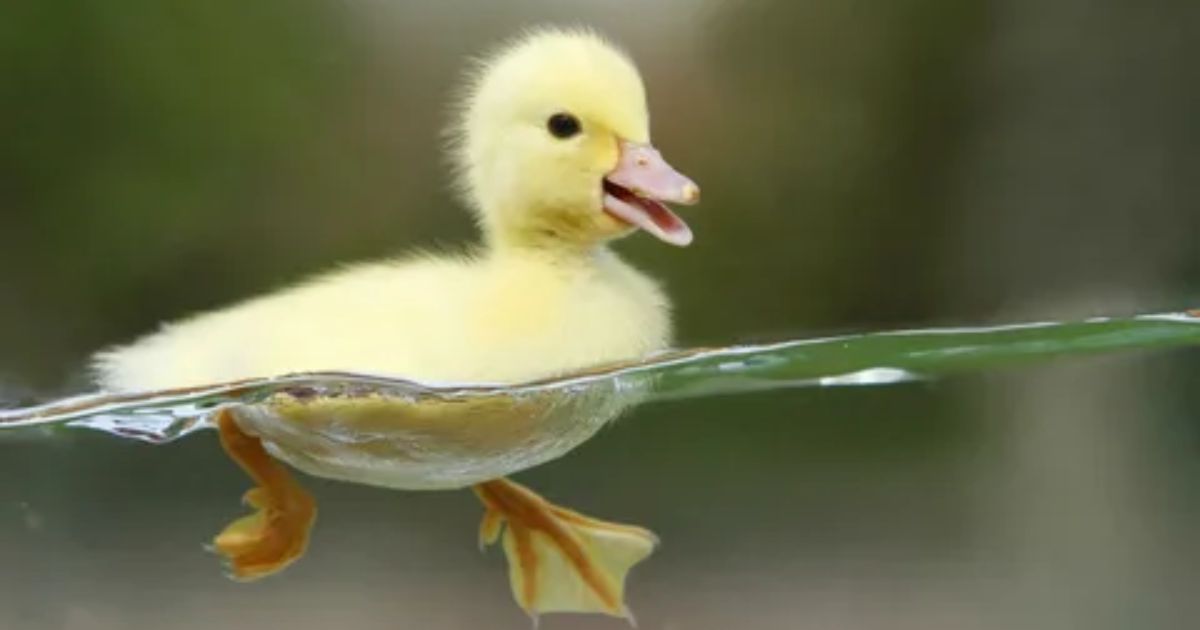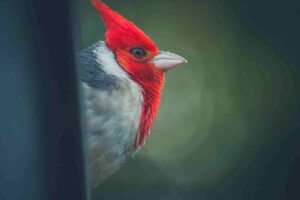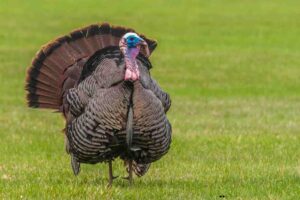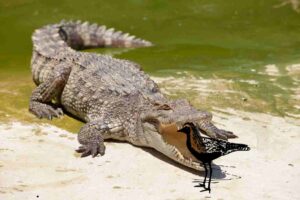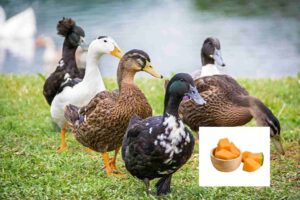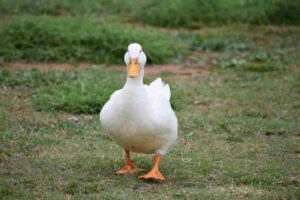When you end up with a few cute baby ducks, one of the first questions that pops up is, “What do baby ducks eat?” These fluffy little creatures bring joy and curiosity to anyone who encounters them. Knowing their dietary needs is crucial for their growth and health. In this comprehensive guide, we will explore what to feed baby ducks, their nutritional requirements.
Fuzzy Baby Ducks: Nutritional Requirements
Ducklings should be provided with a general diet before going to specific amounts of foods to be given to fuzzy baby ducks. Ducklings have distinct needs that must be fulfilled for them to grow. Generally, ducklings require a starter feed containing the right balance of proteins, vitamins, and minerals.
- Explore more about: Do Birds Eat Tomatoes? Understanding Birds and Their Diets
Starter Duckling Feed
The first thing you should consider when thinking about what can baby ducks eat is a commercial starter feed specifically formulated for ducklings. These feeds contain higher levels of protein (around 18-20%) compared to chicken feed, supporting their rapid growth rate. Select a non-medicated feed, because some medications can be bad for ducks.
Explore more about: Great Horned Owl Spiritual Meaning: Unveiling the Mysteries
Advantages of Starter Feed
- High Nutritional Value: It provides all the necessary nutrients for healthy development.
- Easy to Find: Locally available at farm supply stores or online.
- Formulated for Waterfowl: The perfect mix of proteins and vitamins for ducklings.
What Are Baby Ducks Called
Baby ducks are commonly referred to as “ducklings.” These adorable, fluffy little creatures are the newborns of adult ducks and are known for their playful antics and distinct peeping sounds. Ducklings are usually covered in soft down feathers that can be yellow, brown, or a mix of both, providing them with warmth and camouflage in their natural habitats. As they grow, ducklings develop their adult plumage and learn essential survival skills from their mothers. Whether you’re a nature enthusiast or simply curious about these charming birds, understanding the life cycle and characteristics of ducklings can enhance your appreciation for wildlife and the beauty of nature.
Fluffy Baby Ducks: Supplementing with Grains and Greens
While a starter feed is the main diet for fluffy baby ducks, supplementing other food sources will be of great help in enhancing nutrition. Here’s a list of suitable supplements:
- Cooked Grains: Corn, oats, and rice are all great when cooked. These grains can add variety and texture to their diet.
- Vegetables: Leafy greens such as kale, spinach, and lettuce are nutritious. Chop up the vegetables into small pieces so they cannot choke on them.
- Fruits: Ducklings like fruits such as chopped berries, apples, and bananas. Fruits should be given in moderation because of their sugar content.
Water Intake
Water is a critical element in the diet of the little baby ducks. Apart from drinking, water is used in the proper digestion of foods. Clean fresh water needs to be provided always.
Explore more about: What Do Geese Eat? A Guide to Feeding Geese
Feeding Tips
- Freshwater and shallow dish for water have to be arranged so that drowning doesn’t occur.
- Change the water frequently so that it is maintained hygienic.
- Allow them to splash and play in the water as it is one of their natural behaviors.
Do Baby Ducks Need a Heat Lamp?

One of the common questions people have while caring for baby ducks is whether do baby ducks need a heat lamp? The answer is yes, especially within the first few weeks of their life because baby ducks are not able to regulate their body temperatures, thus a heat source is essential for them.
Explore more about: Chickens with Feathered Feet: A Comprehensive Exploration
Maintaining Optimal Temperature
First, ducklings need to be kept warm. The temperature should be about 90-95°F (32-35°C) for the first week. After that, you can decrease the temperature by about 5°F (2-3°C) every week until they reach about 70°F (21°C).
Using a Heat Lamp
- Placement: Place the lamp at one end so the ducklings may move as far away or closer as they prefer.
- Monitor for their behavior; if they huddle underneath the lamp, then it is too cold, and if they avoid it, then they may be too warm.
How Much are Baby Ducks?
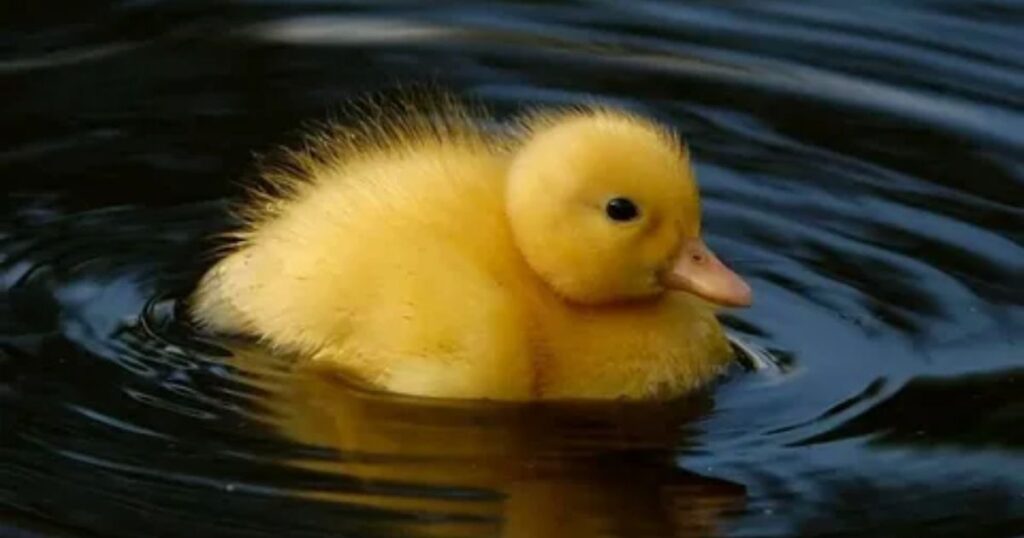
If you are planning to increase the population of baby ducks in your family or farm, it would be essential to know the cost involved. It varies on the breed, age, and whether you buy from a breeder or a local feed store.
Explore more about: What Does a Great Horned Owl Sound Like?
Average Costs
- Overall Range: Typically, the general range for how much are baby ducks is within $3 to $15 each.
- Breeds Count: Specialty breeds, like Lavender Orpingtons or Indian Runners, are likely to be more pricey.
- Geographical Area: The price might vary depending on your area and the availability at local stores.
Other Care Considerations for Ducklings

Although diet plays a crucial role, several other factors affect the health and happiness of your fluffy baby ducks.
Explore more about: How Many Eggs Does a Goose Lay Before Sitting
Space and Housing
Providing ample space is vital for their development. A secure, clean area with plenty of room to roam will keep them healthy and active. Ensure that their housing is safe from predators and drafts.
Socialization
Ducks are social animals and thrive in groups. If possible, consider raising at least two ducks together to avoid loneliness and stress.
Regular Health Checks
Keep an eye on your ducklings for any sign of illness, such as lethargy or abnormal droppings. Their living environment is also to be checked frequently for cleanliness to avoid disease.
Conclusion
Knowing what do baby ducks eat and how to care for them is essential for anyone planning to raise these adorable creatures. From providing the right starter feed to keeping them warm with a heat lamp, ensuring a happy, healthy life for your fuzzy baby ducks requires a bit of effort but is incredibly rewarding.
In a nutshell, focus on good starter feed, rich grain and greens supplement, and the endless availability of fresh water. Monitor closely their living conditions, not forgetting social life. Your cute baby ducks will thank you with their quacking, waddling joy!
FAQs
What can baby ducks eat?
Baby ducks can have commercial starter feed, cooked grains, leafy greens, and some fruits in small amount.
Does a duckling need a heat lamp?
Yes. Ducklings do require a heat lamp for the first two weeks, as it’s the easiest way to supply them with warmth and security.
How much are baby ducks?
Prices of baby ducks may cost from $3 to $15 dollars depending on their breed and location.
